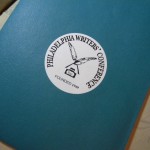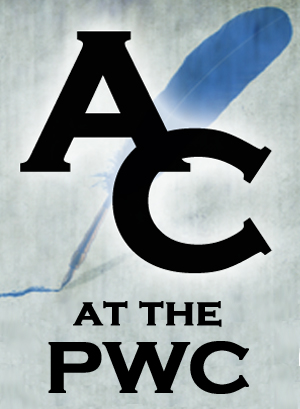I know not every writer is a critique group fan. I fully understand why—there are critique groups that become useless echo chambers, ones that don’t actually lift the craft of their members, or that contain a toxic mix of people. But while there are bad groups, having a good one is invaluable.
I am in a small critique group. We’ve purposely kept it small because we all write novels. With too many people, it takes far too long to put a whole novel through a group. We also kept it small because that way we have flexibility in meeting times—we can find a date that works for everyone.
We are diverse in age range and in what we write. Our backgrounds, both in writing and in life, are also a mixed bag, which brings a variety of expertise into our knowledgebase. Our craft strengths also vary, which allows for a well-rounded critique when you take all of the feedback as a whole.
Personality is a big part of how the group meshes, and we have been lucky to gather a group that leaves their ego at the door. Every one of us is grateful for the feedback (even if we don’t agree with it), and we are also grateful for the kind manner in which the feedback is given. After all, you don’t need to tear someone apart to critique them. We have quite a bit of laughter in our meetings, because while we take our writing seriously, we can laugh at ourselves and our mistakes.
My assessment is that a good critique group is an invaluable resource. My novel THE WITCH OF ZAL went through the group and it would not have made it out of the slush pile without their input. Every month I learn something new about my craft and begin to see and understand ways to improve.
What has your experience with critique groups been?



Top 5 Reasons to Cultivate a Writing Community
This week, while preparing the Author Chronicles’ Top Picks Thursday, I read an article from an antisocial writer who really didn’t want to participate in the writing community. Many writers are introverts, so being hesitant about reaching out to others is understandable. I am a raging introvert myself, but when I think about the writing community I am part of, I cannot imagine pursuing this career alone. Here are 5 reasons why:
Craft – Your community can help you hone your craft before you spend money on editors. From critique partners to beta readers, they will give you honest feedback and handy tips to bring your craft to the next level.
Companionship – If you are like me, it takes a lot to drag you out of your house. Offer me a Writers’ Coffeehouse, a Philadelphia Writers’ Conference, a workshop, or a critique group, and I’m there. Plus, writers are good at being alone together. It is not uncommon in my area to find a group of writers sitting together at a Wegman’s or Starbucks, completely silent except for the furious clicking of their keyboards.
Camaraderie – This is different than Companionship, in that it references the deeper emotional support we get from our writing community. Who but other writers understand the frustration of not finding the exactly right word, or the pain of being rejected for the 100th time, or the elation of placing your first story in even a little-known publication? The emotional lift we get from other writers revs us up and sends us back to our writer’s grottoes ready to face the next challenge.
Collaboration – Usually we think of this in the creative sense, where two or more writers work together on a project. A writing community certainly fosters this, because how else can you meet people to collaborate with? But there are other types of collaboration, such as helping you negotiate a publishing issue or brainstorm a marketing strategy. Two heads are very often better than one.
Connection – Our writing communities are an invaluable resource for networking. We can find editors, agents, publishers, experts, beta readers, critique partners, marketing opportunities and collaborators through our community. The community can help spread the word when we have a new book out. Our community keeps us abreast of the latest news in publishing, the latest scams to beware, and the latest accomplishments of our friends.
I am forever thankful for the people in my writing community: the Writers’ Coffeehouse, the Philadelphia Writers’ Conference, workshop-mates, and of course my critique partners. There are so many people who have cheered me on, cheered me up, and made this journey so much more enjoyable.
Walk this path alone? Inconceivable.